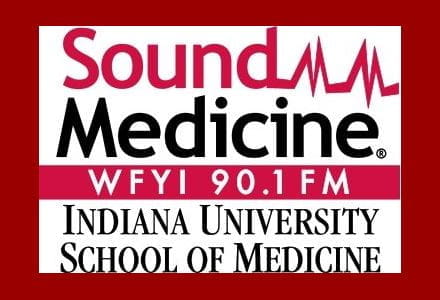INDIANAPOLIS — “Sound Medicine” announces its program for Feb. 23, featuring segments about the surprise costs for preventive health care services, treating colic with probiotics, and why patients are leaving the hospital against medical advice.
Why are medical malpractice attorneys turning down cases? According to a recent article in ProPublica, medical malpractice attorneys routinely decline malpractice cases because the potential damages are often not enough to make the case worthwhile economically. Marshall Lewis, author of “When an Attorney Won’t Take Your Case,” joins “Sound Medicine” to discuss the cost of medical malpractice cases, how malpractice cases vary from state to state, and alternative forms of recourse for medical malpractices victims.
Are preventive services free under the Affordable Care Act? According to the Affordable Care Act, most health care plans are supposed to provide preventive health care services at no cost. However, many consumers expecting free preventive procedures, like cancer screenings and vaccines, are sometimes surprised with medical bills. Michelle Andrews, a freelance writer for Kaiser Health News, discusses how these charges can sometimes slip through the cracks and how consumers can get their billing corrected.
Why are patients leaving the hospital against medical advice? David Alfandre, M.D., MSPH, recently published an essay in The Journal of the American Medical Association about patients leaving the hospital against medical advice. Dr. Alfandre joins “Sound Medicine” to discuss his essay, how often this occurs, and how implementing shared decision-making can prevent patients from leaving. Dr. Alfandre is an assistant professor in the Division of Medical Ethics at NYU Langone Medical Center and a health care ethicist at the VHA National Center for Ethics in Health Care.
Do probiotics help ease colic? A study recently published in Italy found that feeding infants formula or breast milk that contained probiotics could help ease colic. The good bacteria in probiotics were found to help reduce crying time, constipation and spitting up. Bruno Chumpitazi, a professor at the Baylor College of Medicine Department of Pediatrics, discusses the Italian study and the benefits of probiotics for infants.
Can pets have kidney transplants? “Sound Medicine” healthy pets expert Liz Murphy, DVM, joins Barbara Lewis in the studio to discuss kidney transplants for pets. Dr. Murphy discusses the process for cats and dogs, as well as how pet owners can prepare animals for such an operation.
“Sound Medicine” covers controversial ethics topics, breakthrough research studies and the day-to-day application of recent advancements in medicine. It’s also available via podcast and Stitcher Radio for mobile phones and iPads and posts updates on Facebook and Twitter.
Co-produced by the IU School of Medicine and WFYI Public Radio (90.1 FM) and underwritten in part by Indiana University-Purdue University Indianapolis, “Sound Medicine” airs on the following Indiana public radio stations: WBSB (Anderson, 89.5 FM), WFIU (Bloomington, 103.7 FM; Columbus, 100.7 FM; Kokomo, 106.1 FM; Terre Haute, 95.1 FM), WNDY (Crawfordsville, 91.3 FM), WVPE (Elkhart/South Bend, 88.1 FM), WNIN (Evansville, 88.3 FM), WBOI (Fort Wayne, 89.1 FM), WFCI (Franklin, 89.5 FM), WBSH (Hagerstown/New Castle, 91.1 FM), WFYI (Indianapolis), WBSW (Marion, 90.9 FM), WBST (Muncie, 92.1 FM), WBSJ (Portland, 91.7 FM), WLPR (Lake County, 89.1 FM) and WBAA (West Lafayette, 101.3 FM).
“Sound Medicine” is also broadcast on these public radio stations across the country: KSKA (Anchorage, Alaska), KTNA (Talkeetna, Alaska), KUHB (Pribilof Islands, Alaska), KUAF (Fayetteville and Fort Smith, Ark.), KIDE (Hoopa Valley, Calif.), KRCC (Colorado Springs, Colo.), KEDM (Monroe, La.), WCMU (Mount Pleasant, Mich.), WCNY and WRVO-1 (Syracuse, N.Y.), KMHA (Four Bears, N.D.), WYSU (Youngstown, Ohio), KPOV (Bend, Ore.) and KEOS (College Station, Texas).
Please check local listings for broadcast dates and times.




